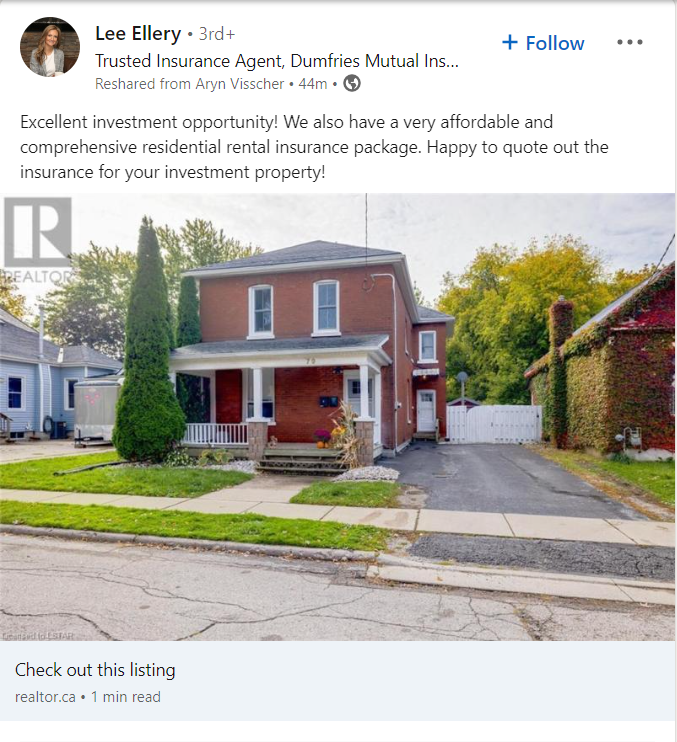Buying an investment property has its own perks, but do you know how much to pay for it? Learn all about investment property mortgage rates. Read this article now

Due to the increased risk to lenders, investment property mortgage rates are generally higher than mortgage rates for primary residences. As a rule, if the lender is faced with greater risk, not only is the mortgage rate higher, but the borrowing requirements become stricter.
But don’t worry.
If you’re financially prepared to make the investment, you will likely reap the rewards, such as securing a stable investment and potential tax benefits, not to mention increased cash flow. If, on the other hand, you’re financially unprepared, there are risks.
Here is everything you need to know about investment property mortgage rates, from the type of loan options available to you, the pros and cons of investment properties, and more. For the mortgage professionals who come to our site, this article is excellent for clients that you want to help understand this concept. Pass it along to them in an e-mail.
What are investment property mortgage rates?
Buying an investment property to generate rental income is different than buying a primary residence. Generally, investment property mortgage rates are higher than rates on more traditional property purchases. This also means the requirements to secure an investment property mortgage are more difficult.
Investment property mortgage rates can be 50 to 87.5 basis points higher than mortgage rates on primary properties. For instance, say the rate for your 30-year fixed-rate mortgage on an owner-occupied property averages roughly 3.25%. For a 30-year investment property mortgage, on the other hand, you would likely have a 3.75% to 4.125% interest rate.
The reason for this jump on investment property mortgage rates is that lenders are taking on more risk when lending to real estate investors. More risk means a higher interest rate and stricter borrowing requirements.
After all, if you invest and rent out your investment property to generate rental income, you may see periods of vacancy which, in turn, increase the likelihood of defaulting on the mortgage. If you are financially unprepared, you may be forced to pay your primary mortgage first and walk out on your investment property mortgage.
What kind of loan do I need for an investment property?
There are numerous reasons to make a real estate investment. You may want to purchase and hold the land for future development, flip the property for profit, buy a home for an elderly parent to live in and enjoy the appreciation when you sell it, or generate passive income by securing renters. In either case, buying an investment property can be a great option to help diversify your portfolio.
After you have made the decision to buy an investment property, conducted your own research and secured the best deal, you then must figure out which loan you need. Here are four ways to finance an investment property:
- Conventional bank loans
- Hard money loans
- Private money loans
- Tapping home equity
Let’s take a closer look at each to better understand which type of loan will work best for your investment property.
1. Conventional bank loans
A conventional bank loan for an investment property is like what you would have gotten for your primary residence. Conventional bank loans conform to guidelines set by Freddie Mac and Fannie Mae and are not backed by the federal government (as opposed to FHA, VA, and USDA loans, for example).
The standard expectation for a down payment on a conventional bank loan is 20% of the purchase price of the property. For an investment property, however, lenders typically require a 30% down payment.
Conventional loans also require your personal credit history and credit score, which will help lenders determine your eligibility as well as your interest rate. Your income and assets will also be reviewed. Essentially, you will have to prove you can afford your current mortgage and the monthly loan payments for your investment property.
Keep in mind that your future rental income will not be factored into the debt-to-income (DTI) ratio. In fact, most lenders expect you to have six months of cash set aside to pay for both of your mortgage obligations.
2. Hard money loans
Hard money loans are short-term loans that are good if you want to flip an investment property rather than purchase it to rent out or develop. The reason is that hard money loans are easier to qualify for than conventional loans. The focus of hard money loans is the home’s profitability, even though your lender will still consider factors like your income and your credit.
To determine if you will be able to pay off the loan, the property’s estimated after-repair value (ARV) is calculated. That fact that you can get loan funding in days instead of weeks or months is another reason hard money loans are easier than conventional mortgages.
While these loans can be easier to secure and are best for house flipping, the downside is that interest rates can be as high as 18% and you usually have less time to pay it back. It is common for hard money loans to have terms that last under one year. Compared to conventional loans, hard money loans also have higher origination fees and closing costs.
3. Private money loans
A private money loan is a loan from one person to another, usually between friends and/or family. If neither of these is an option for a private money loan, you may benefit from attending local real estate investment networking events.
The loan terms on private money loans can vary significantly since they are dependent on the relationship between the lender and the borrower. Typically, private money loans are secured by a legal contract which allows the lender to foreclose on the home if the borrower defaults on payments.
It is important to consider the relationship you have with the lender before you sign an agreement with someone in your life, especially if you are new to real estate investing.
Learn best real estate investing courses if you're new to real estate investing.
4. Tapping home equity
Another way to secure an investment property is by tapping your home equity, either through a cash-out refinance, a home equity line of credit (HELOC), or a home equity loan. Usually, you can borrow up to 80% of the home’s equity value to help pay for or repair an investment property.
Using equity to finance your investment property can have its downsides. If you use a HELOC, for example, you borrow against the equity like you would with a credit card, with the monthly payments usually interest only. However, the rate is often variable, meaning it can rise if the primate rate fluctuates.

Are investment properties worth it?
On first blush, it would certainly seem like investment properties are worth it. For one, there are potential tax benefits depending on your jurisdiction; and two, you may have the opportunity to generate wealth. As with any major decision in real estate, however, it is critical to weigh the pros and cons with the help of a respected professional before committing.
Let’s take a quick look at the pros of investment properties:
- Security and stability
- Cash flow
- Tax benefits
- Long-term investment
Here is a closer look at each of the benefits of investment properties:
1. Security and stability
First and foremost, properties are almost always in demand, since everyone needs a place to live. While the housing market is notorious for its fluctuations, it is less affected by market changes and is more likely to provide fixed returns. Compared to other types of investments, real estate is therefore generally more secure and stable.
2. Cash flow
There is a high demand for housing, meaning that an investment property will likely provide you with a steady stream of passive income. This is especially true if your rental income is higher than your monthly repayments and maintenance costs. You can even use your rental income to repay the mortgage and any other expenses that arise.
3. Tax benefits
You may also enjoy tax deductions that allow you to maximize your tax return on investments. For example, any expense that you incur in the day-to-day operation of your rental property should be claimed against your income, which will reduce your tax.
4. Long-term investment
In the long term, the value of your real estate investment should increase, as should your rental income, if your property is in a high-yield area. Your cash flow should also increase, which you can use to then expand your investment portfolio.
While there are obvious benefits to investment properties, there are also drawbacks. Here is a quick look at the cons of investment properties:
- Liquidity issues
- Entry costs
- Ongoing costs
- Difficult tenants
Here is a closer look at each of the drawbacks of investment properties:
1. Liquidity issues
You will likely have a difficult time accessing cash if you invest in property, which is different from stocks. After all, it takes more time to sell a home. If you have an immediate need for cash, like an emergency, you will have a tougher time cashing in on your investment.
Read more: How does cash-in refinance work?
2. Entry costs
The heavy financing required is one of the biggest challenges for anyone who wants to get into the investment property game. The deposit alone can cost tens of thousands of dollars—if not more.
3. Ongoing costs
Because of the high costs involved, investment properties require a lot of planning. Owning a property will cost you mortgage payments, council rates, maintenance and renovation costs, and private mortgage insurance—each ongoing, over time. Your investment strategy should therefore be to generate more income from your property than all your ongoing costs combined.
4. Difficult tenants
If you have difficult tenants, it can be a nightmare. They can cause emotional stress and their actions may even lead to financial losses. This is particularly true if your tenant does not pay rent or cause damage to the property.
What is the typical down payment on an investment property?
The typical down payment on an investment property is between 20% to 25%. However, it can also be common for lenders to require a 30%. On the other end of the spectrum, there are some loan programs that offer investment property financing with a down payment as low as 15%.
Of course, the typical down payment on an investment property depends on the lender’s requirements, as well as the borrower’s experience, general risk profile, and credit history. The potential level of risk for the lender increases if the borrower makes a smaller down payment, which increases the loan-to-value (LTV) ratio.
Another way to view it is that the someone must shoulder the risk, either the lender or the borrower. A smaller down payment lessens the risk on behalf of the borrower and increases the lender’s risk. In other words, the borrower may be more willing to walk away from the investment if it underperforms. To compensate the lender for taking more risk, investment property loans with a higher LTV ratio usually come with higher interest rates and larger loan fees.

What is the 1% rule for investment property?
The 1% rule for investment property is this: the monthly rent you collect on an investment property should be equal to or more than 1% of the purchase price. This essentially means that you should charge no less than 1% of the purchase price. It also means that you should seek a monthly mortgage payment that, ideally, is less than that 1% number—and certainly no more.
For instance, if you buy a home for $150,000, multiply that number by 1%, which will get you $1,500. That number, in this case $1,500, is what you should charge your tenant(s) per month to cover your investment.
As we have seen, investment property mortgage rates are usually higher than mortgage rates for primary residences. If, however, you are financially prepared, you will reap the rewards. It is critical that you weigh the risks, and implement strategies such as the 1% rule, and you will be able to get the most out of your investment.
Do you have experience with investment property mortgage rates? Let us know in the comment section below.



